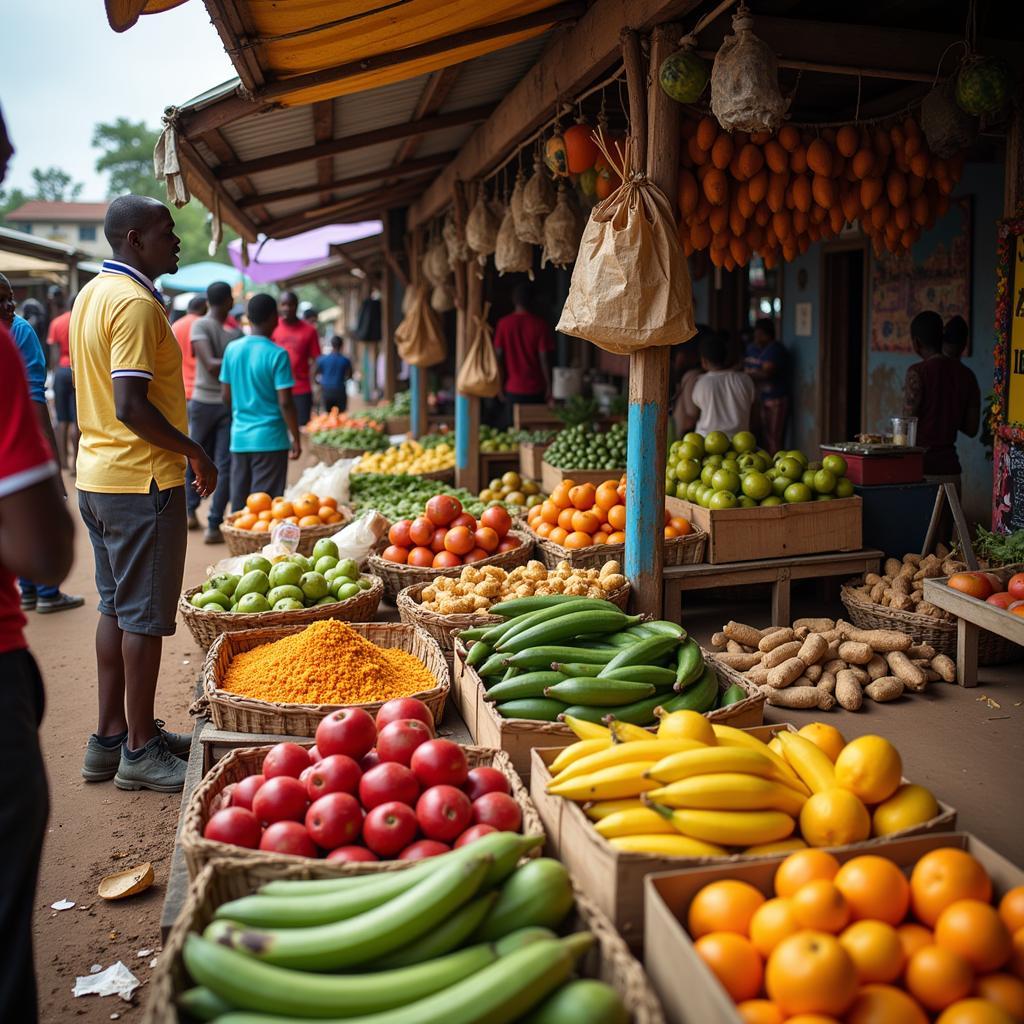Exploring the Diversity of African Food Crops
African Food Crops are as diverse as the continent itself. From the fertile Nile Valley to the arid Sahel, African farmers have cultivated a rich variety of crops that have sustained generations and continue to play a vital role in global food security. This article delves into the history, significance, and future of some of the most important African food crops.
A Legacy of Resilience: African Crops Through Time
For millennia, African communities have skillfully adapted to diverse ecosystems, developing ingenious agricultural practices and cultivating a wide range of nutritious and resilient crops. These crops, often overlooked in global discussions about food security, represent a legacy of knowledge, tradition, and adaptability.
Key Players: Staples of the African Diet
Cereals: The Foundation of Sustenance
Cereals form the backbone of many African diets. Among the most prominent are:
- Sorghum: Highly drought-tolerant and adaptable to diverse soils, sorghum is a staple in many parts of Africa. It is consumed as porridge, flatbreads, and beverages.
- Millet: Another resilient crop, millet thrives in arid and semi-arid regions. It is known for its nutritional value and is used in porridge, couscous, and beer.
- Maize: Introduced to Africa centuries ago, maize quickly became a staple, particularly in Southern and Eastern Africa. It is enjoyed as a cooked vegetable, porridge, and ground into flour.
Root and Tuber Crops: Hidden Treasures of Nutrition
Root and tuber crops, often grown alongside cereals, provide essential carbohydrates and nutrients. Key examples include:
- Yams: A significant crop in West Africa, yams are boiled, fried, or pounded into a paste called fufu. They are rich in carbohydrates and fiber.
- Cassava: Known for its ability to grow in poor soil conditions, cassava is a vital source of calories in many parts of Africa. It is processed into various forms, including garri, fufu, and tapioca.
 Vibrant African Food Market
Vibrant African Food Market
Fruits and Vegetables: A Bounty of Flavor and Nutrition
The African continent boasts a wealth of fruits and vegetables that contribute essential vitamins and minerals to the diet. Some notable mentions include:
- Plantains: A type of banana, plantains are a staple in many African cuisines. They are enjoyed ripe or unripe, boiled, fried, or roasted.
- Okra: This versatile vegetable, known for its pods, is used in stews, soups, and sauces. It is rich in fiber and antioxidants.
- African Eggplant: Smaller and more bitter than its European counterpart, the African eggplant adds a unique flavor to stews and sauces.
Facing the Future: Challenges and Opportunities for African Food Crops
Climate change, land degradation, and limited access to resources pose challenges to the future of African agriculture. However, by embracing sustainable farming practices, promoting indigenous crops, and supporting local farmers, Africa can harness the potential of its diverse food crops to ensure food security and economic growth.
Conclusion: A Continent Rich in Culinary Heritage
African food crops represent more than just sustenance; they are a testament to the continent’s rich history, cultural diversity, and deep connection to the land. By understanding and appreciating the value of these crops, we can contribute to a more sustainable and equitable food future for all.

